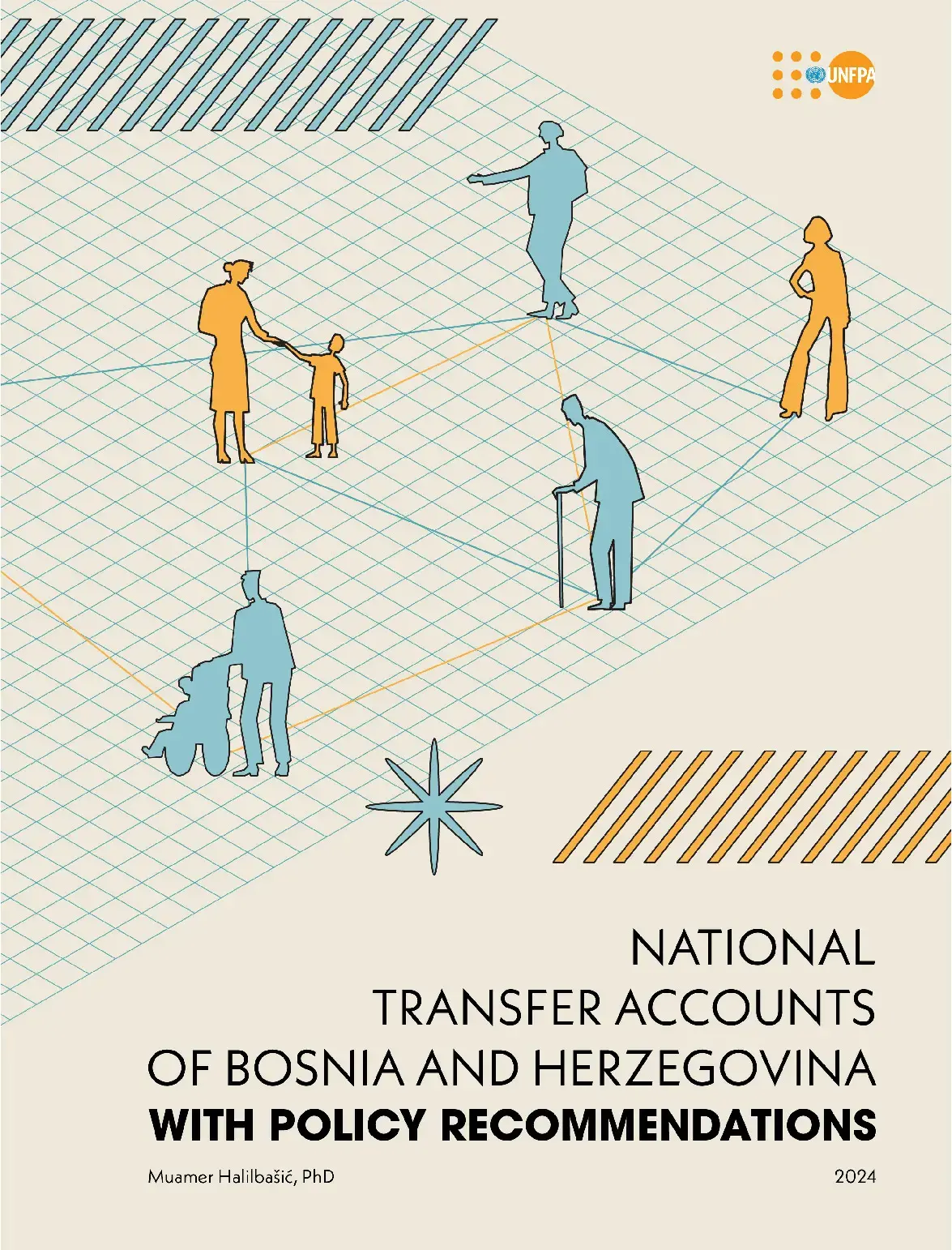The National Transfer Accounts constitute a complete, systematic and coherent accounting framework of economic flows from one age group or generation to another in a given calendar year (UN, 2013). Age profiles are cross sectional rather than longitudinal. The key goal of this accounts system is to assess the generational dimension of the economy. According to Lee & Mason (2011:7), the generational economy consists of: (1) the social institutions and economic mechanisms used by each generation or age group to produce, consume, share, and save resources; (2) the economic flows across generations or age groups that characterise the generational economy; (3) explicit and implicit contracts that govern intergenerational flows; (4) the intergenerational distribution of income or consumption that results from the foregoing.
The analysis below is based on the national transfer accounts developed for Bosnia and Herzegovina by the Agency for Statistics of Bosnia and Herzegovina (BHAS), following the United Nations (UN) methodology, using data for 2015 (BHAS, 2023). Comparison with EU 25 countries relies on the AGENTA database for 2010 (Istenič et al., 2016).
The document is organised as follows. The first section presents NTA findings, with the focus on those that are the most relevant from the social sector policy implications. Second section highlights specific findings, provides a brief situation analysis, and recommendations for improvements in the areas of education, youth employment, pension system, healthcare and long term care (LTC) for older persons.


